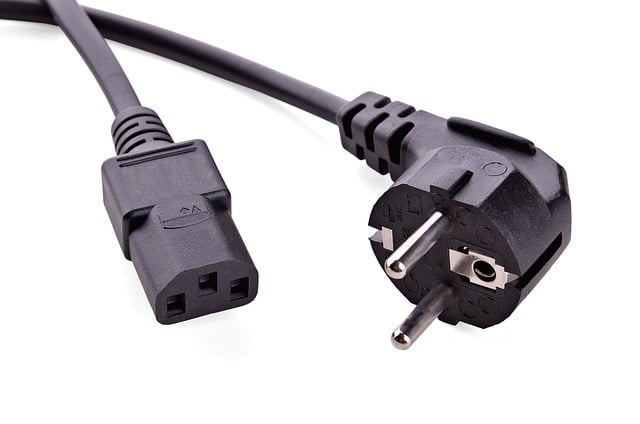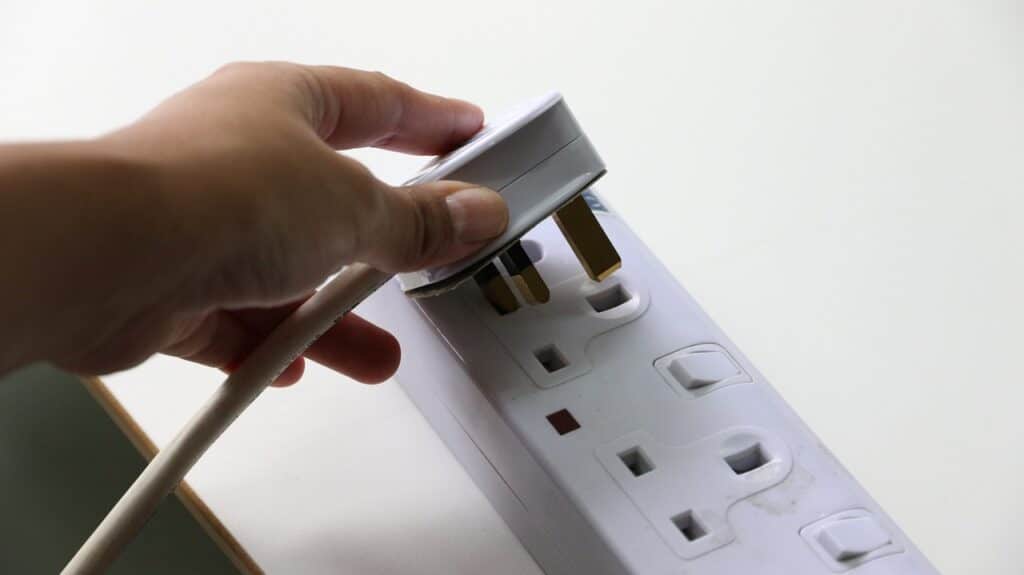Introduction – Extension Cords
An extension cord is a device that allows you to connect an electrical appliance or tool to a power source from a distance. This can be useful when you need to use an appliance in an area that doesn’t have a nearby outlet or to avoid running long lengths of electrical wire through your home or office. But does leaving an extension cord plugged in use electricity? I will discuss it more later.

Does Leaving An Extension Cord Plugged In Use Electricity?
In general, no. If you have an extension cord that is not being used, it is best to unplug it. However, it will not use electricity if you leave it plugged in.
The only time electricity is used with an extension cord is when it is plugged into an outlet, and something is plugged into the other end of the cord, such as a lamp.
If you have an extension cord that is not being used and leave it plugged in, no electricity will flow through it, and there will be no charge for leaving it plugged in. Unplugging and replugging the extension cord can also use more electricity than just leaving it plugged in.
When you unplug an extension cord, a small amount of electricity is discharged. However, this discharge is so small that it does not warrant unplugging the extension cord when you are finished using it.
In conclusion, leaving an extension cord does not use electricity unless something is also plugged into the other end of the cord. Unplugging and replugging the extension cord can also use more electricity than just leaving it plugged in.
How To Use An Extension Cord Safely?
Many people believe that they can use their extension cords without worrying as long as they avoid contact with water. However, this is not the case. You need to keep a few things in mind when using an extension cord to ensure your safety.
First, ensure that the cord you use is rated for the power you will draw. If you use appliances that require a lot of power, such as a hair dryer or space heater, make sure to use a heavy-duty extension cord. Never try to daisy chain together multiple cords to extend your reach – this can create a fire hazard.
Second, always inspect your extension cord before each use. Look for signs of wear and tear, such as cracks in the insulation or frayed wires. If you see any damage, do not use the cord and replace it immediately.
Finally, follow all safety precautions when using your extension cord. Never try to force a plug into an outlet – if it does not fit easily, there is probably something wrong with the outlet or the cords. When plugging in multiple appliances, be sure not to overload the circuit by exceeding the recommended amperage for the outlet.
And always unplug appliances before leaving them unattended – even for just a few minutes! Following these simple safety tips can help prevent accidents and keep yourself safe while using extension cords.
The Dangers Of Leaving An Extension Cord Plugged In
Many people don’t realize the potential dangers of leaving an extension cord plugged in. The main hazard is fire. The National Fire Protection Agency warns that 3,300 home fires each year are started by extension cords. They also report that electrical fires cause one-third of all home fire deaths.
The second danger is a shock. If an appliance is accidentally left on, or if a bare wire is exposed, anyone who touches it could be electrocuted. The third danger is trip and fall hazards. If cords are not properly secured, they can create a trip hazard.
Finally, heat can damage extension cords, which can lead to shorts and sparks. So, it’s important to unplug extension cords when not in use. Not only will this reduce the risk of fire, but it will also protect you and your family from shocks and falls.
Alternatives To Using An Extension Cord
Alternatives to using an extension cord are purchasing a longer cord, using a power strip, or avoiding the need for an extension cord altogether.
Purchasing a longer cord is often the simplest and most obvious solution. If you frequently need an extension cord, it may make more financial sense to buy a longer one in the long run.
For example, if you need an extension cord for your vacuum cleaner, look for one at least 25 feet long. That way, you will have plenty of lengths to reach all areas of your home without using an extension cord.
Another option is to use a power strip. A power strip allows you to plug multiple devices into one outlet. This can be helpful if you have several devices that you need to plug in but don’t have enough outlets to accommodate. Just be sure to unplug any devices that are not in use; otherwise, they will still draw power even when turned off.
Finally, it’s always best to avoid needing an extension cord whenever possible. If you know you’ll need an extension cord for a certain task, try to do it during daylight hours to take advantage of natural light.
And be sure to declutter your living space so that cords aren’t running across high-traffic areas that could pose a tripping hazard. Taking these precautions can help minimize the need for extension cords and keep your home safe.
Wrapping Up

In conclusion, does leaving an extension cord plugged in use electricity? No, extension cords do not use electricity when they are plugged in but not in use. However, there are potential dangers associated with leaving extension cords plugged in, such as fire hazards, shocks, and trip and fall hazards.
So it’s always best to unplug them when they’re not in use. And if you find yourself frequently needing an extension cord, try to purchase a longer one or use a power strip instead. Following these simple safety tips can help prevent accidents and keep your home safe.
Extension cords come in various lengths and gauges, so it’s important to choose the right cord for your needs. For example, a light-duty extension cord might be fine for connecting a lamp to an outlet, but it wouldn’t be sturdy enough to power a space heater.
When using an extension cord, it’s important to be aware of potential safety hazards. Never use a damaged or frayed cord; always unplug it before disconnecting it from an outlet. With proper care and usage, extension cords can be a handy way to bring power to hard-to-reach places.
